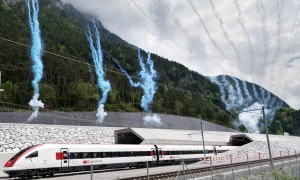🕑 Reading time: 1 minute
A construction project is basically a temporary endeavor with specified time & cost, initiated to create a unique product, service or result, tend to be limited edition. The project-team comes together to create that unique development on a particular site under circumstances that will never be repeated. They may be complex, demanding high level of co-ordination of permissions, people, goods, plant and materials and construction can begin despite many uncertainties, and as a consequence, delays are common. Furthermore, the involvement of advanced technologies and owner-desired-changes makes it even more difficult to keep a project on the scheduled track. Coupled with this state are innate uncertainties and sophistication in the physical, financial, and economic environment in which most projects are performed. Such conditions have made completing projects on schedule and on budget a difficult task to accomplish, often leading to claims on cost compensations and time extensions.
Construction delays are considered as time lag in completion of activities from its specified time as per contract or can be defined as late completion or late start of activities to the baseline schedule, directly affecting specified cost.
As a result, there will be extensions of time required which will further result in fine, increased cost due to inflation, termination of contract, court cases etc. or combinations of above stated factors, resulting in delay damages.
Such conditions have made completing projects on schedule and on budget a difficult task to accomplish, often leading to claims on cost compensations and time extensions.
Construction delays are considered as time lag in completion of activities from its specified time as per contract or can be defined as late completion or late start of activities to the baseline schedule, directly affecting specified cost.
As a result, there will be extensions of time required which will further result in fine, increased cost due to inflation, termination of contract, court cases etc. or combinations of above stated factors, resulting in delay damages.
 Construction delays are often result of a mismanaged event/s and can be seen as a risk for the projects, which if identified, analyzed and managed in a systematic process at inception, could be managed, minimized, shared, mitigated or accepted to give some good results and minimize chances of further delay.
Delay in construction project has a negative effect on clients, contractors, and consultants in terms of growth in adversarial relationships, mistrust, litigation, arbitration, and cash-flow problems.
A construction project may be regarded as a successful endeavor until it satisfies the cost, time, and quality limitations applied to it. However, it is not uncommon to see a construction project failing to achieve its goal within the specified cost, time, and quality.
In order to counter the unforeseen delays beforehand the realm of “Project management” is resorted to which helps mitigating the delays. Project management is the application of knowledge, skill, tools and techniques to project activities to meet the project requirement and requires the effective management of the project management processes.
Construction delays are often result of a mismanaged event/s and can be seen as a risk for the projects, which if identified, analyzed and managed in a systematic process at inception, could be managed, minimized, shared, mitigated or accepted to give some good results and minimize chances of further delay.
Delay in construction project has a negative effect on clients, contractors, and consultants in terms of growth in adversarial relationships, mistrust, litigation, arbitration, and cash-flow problems.
A construction project may be regarded as a successful endeavor until it satisfies the cost, time, and quality limitations applied to it. However, it is not uncommon to see a construction project failing to achieve its goal within the specified cost, time, and quality.
In order to counter the unforeseen delays beforehand the realm of “Project management” is resorted to which helps mitigating the delays. Project management is the application of knowledge, skill, tools and techniques to project activities to meet the project requirement and requires the effective management of the project management processes.
Contents:
Processes in Construction Project Management
Project management processes are grouped into five categories known as Project Management Process Groups. 1. Project Initiating 2. Project Planning 3. Project Execution 4. Project Monitoring & Control 5. Project Closing Identification and study of delays comes under Project Monitoring & Control. If done properly, delays can be minimized by: a. Teamwork b. Detailed investigations. c. Careful & regular monitoring and meetings. d. Effective management. e. Collaborative & effective working and coordination. f. Careful scheduling.Types of Delays in Construction Projects
However, it is important to understand the types or categories which a delay falls into before analyzing construction delays. To initiate the further mitigation efforts and to convert it into a merit, a clear understanding of types of delays is necessary. The delays are classified or categorized into four basic ways: A) Critical or non-critical delays B) Excusable or non-excusable delays C) Concurrent delays D) Compensable or non-compensable delays There is also a need to understand the assimilation between the categories before determining the impact of delays on the project.- One must determine whether the delay is critical or non-critical.
- Additionally, all delays are either excusable or non-excusable.
- Both excusable and non-excusable delays can be defined as either concurrent or non-concurrent.
- Delays can be further broken down into compensable or non-compensable delays.
A) Critical or non-critical Delays:
A delay that is responsible for extending project duration is a critical delay. Few results are mentioned below:- Extended Field Overhead
- Unabsorbed home office overhead
- Liquidated Damage
- Idle labor & equipment cost
- Labor & Material Cost Escalation and many more.
B) Excusable & non-excusable Delay
A delay where the contractor is entitled for extension of time or compensation or both, under the terms & conditions of contract is excusable delay. In this case, contractor does not have any control on the activity getting delayed. The causes may be;- Force Measure Clause
- Natural Calamities
- Political/Social Unrest
- Terrorist Attacks
- Delay from Client (Approvals, Decisions, etc.), etc.
- Delayed Mobilization
- Delayed Procurement
- Delayed submission of important documents
- Planning & Scheduling
- Critical events that were not highlighted to client on right time, etc.



